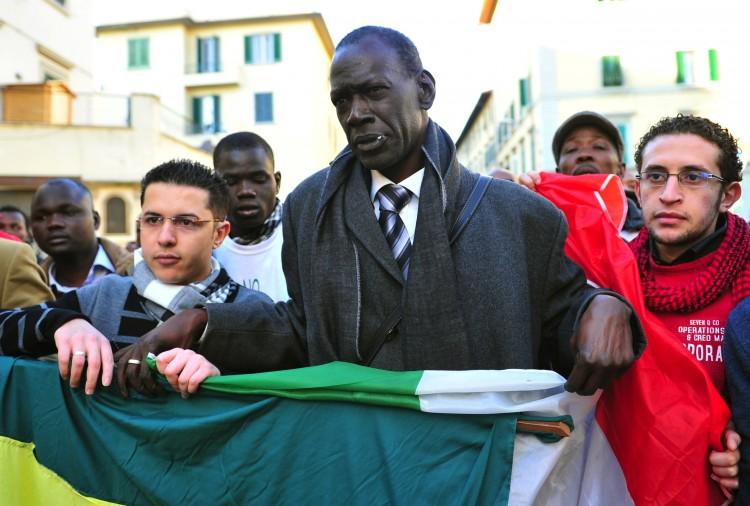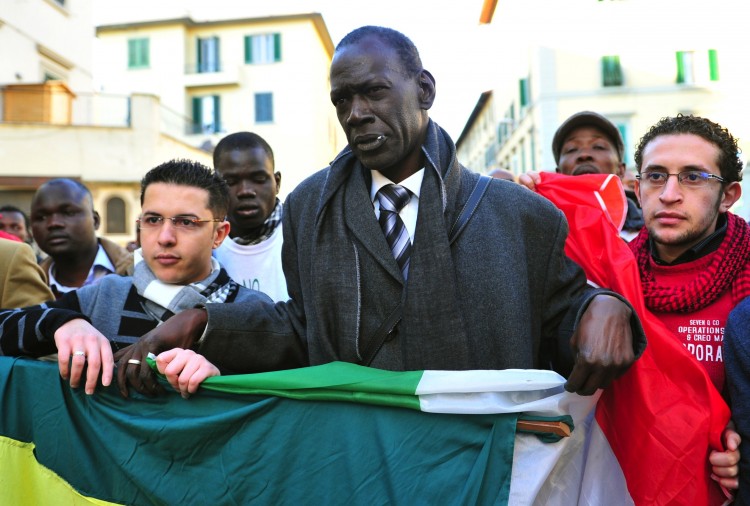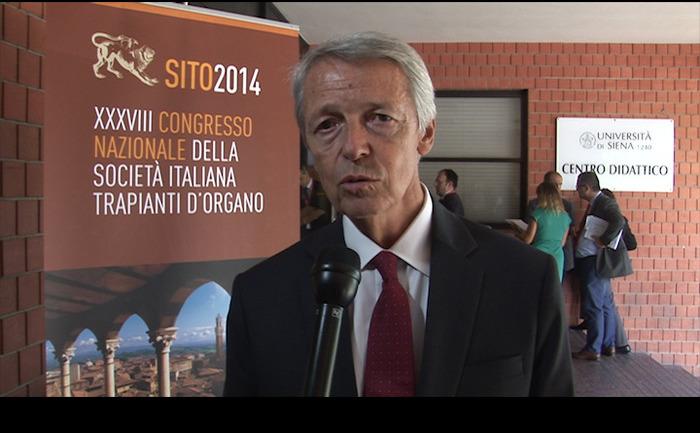FLORENCE, Italy—It could have triggered a violent reaction, like the riots in London earlier this year, or in the Parisian suburbs in 2005, where the violent death of two immigrant youths sparked a riot that put the city on fire. But that is not how the murder of two Senegalese men in Florence, at the hands of a right-wing extremist, played out.
Instead, the city’s immediate response was of solidarity toward the victims and their compatriots, which had the effect of calming angers and creating a climate of reflection and dialogue.
On Dec. 13, Gianluca Casseri, 50, a man linked to the extreme right, killed two men from Senegal— Samb Modou, 40, and Diop Mor, 54—and injured another three in two different parts of the city, before killing himself.
News of the event quickly spread and local Senegalese came together in a spontaneous demonstration in the city center. Overcome with emotions of anger and disbelief, the mood was initially tense.
But reaction from the people of Florence channeled energies in a different direction.
The mayor called a press conference, condemning the attack on behalf of the entire city and declared a day of mourning for the following day. Flags flew at half-mast, market stalls in San Lorenzo and Dalmatia squares, where the attacks took place, shut down and shopkeepers hung signs reading “No to racism! Closed in solidarity with the victims of racism.” And the squares filled with flowers to make a statement that Florence is not a racist city. Local and national authorities made statements condemning the racist acts.
“A xenophobic killer not only destroyed lives, but it has sown despair not only in the Senegal community but in all the Florentine one,” Florence Mayor Matteo Renzi told reporters.
The strong show of support surprised the entire immigrant community.
“We really calmed down,” Nasira from Mali, who was just steps away when the men were killed, told The Epoch Times. “Because we saw Florence people cry for us, come out to help us calm down, and then express their solidarity, this has given us incredible pleasure.”
The Senegalese community also convened a rally and a parade, on Saturday to remember the victims and to make suggestions for the future. One banner leading the parade read, “The fate of humanity is brotherhood.”
Organizers had expected 3,000 participants, but 12,000 came from all over Italy. Italians and immigrants of all nationalities marched together.
“One can always express the pain in a calm way,” said Pape Diaw, representative of the Senegalese community in Florence. “You cannot reply to something so cruel with a violent action. Florence has given an extraordinary response. This is the Florence that we know well.”
The events in Florence are not isolated cases of violence against immigrants in Italy. Just a few weeks ago, a nomadic camp was set on fire in Turin. The issue of immigration and integration are at the center of political debate and are hot and controversial issues that divide public opinion in the country.
Even in Florence itself, which in the past has shown itself to be tolerant and welcoming to immigrants, in recent years there have been moments of tension between the Senegalese community, that has grown enormously over the past 20 years, and far-right groups such as Casa Pound, which the Florence killer belonged to.
Yet this episode, so violent and unexpected, is being seen as an opportunity to tackle the problem seriously.
“From this day we want to open a very deep thinking in the country,” Diaw told The Epoch Times at the Dec. 17 rally. “We have to start a process of peace between us. [A process] where the values of human beings are in the center: to die in 2011 because of the color of skin has shaken the conscience. That’s where we have to start, without demagoguery or many speeches, but trying to work together for dialogue, coexistence and integration.”
The tone was similar from other participants in the parade, who expressed awareness of the situation and the expectation of a better future.
“I think that every day they [immigrants] experience this country’s hospitality, and at the same time the difficulties,” said one Florentine woman who took part in the parade.
“I hope that from this event today they will feel particular solidarity, the sharing of the pain, but also a true, strong commitment to build a new Italy, which won’t be possible if we are not able to build it with them,” she added.
With reporting by Marco Tistarelli






